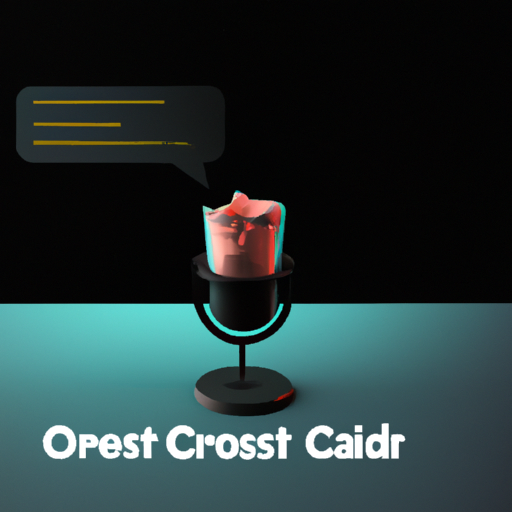
Create Podcast Transcripts.
Admin / April 13, 2023
Creating podcast transcripts is an essential step in making your audio content accessible and searchable. With our AI powered speech to text converter utilizing automatic speech recognition (ASR), you can effortlessly generate accurate transcripts for your podcasts in over 170 languages and dialects. Our deep learning technology ensures high precision and efficiency, saving you time and effort compared to manual transcriptions. These transcripts can improve the accessibility of your content for individuals with hearing impairments, enhance SEO by making your podcast searchable by search engines, and provide a valuable reference for your audience. Unlock the full potential of your podcasts with our seamless podcast transcription solution.
Creating podcast transcripts has become increasingly popular and essential for content creators and businesses alike. Podcasts have gained tremendous traction as a medium for sharing information, stories, and ideas. However, audio content can present challenges for accessibility, search engine optimization (SEO), and content management. This is where podcast transcripts come in as a valuable tool to address these challenges and unlock the full potential of your podcasts.
Podcast transcripts are written versions of the audio content, capturing the spoken words in text format. Transcripts can be created manually, but this can be time-consuming, labor-intensive, and error-prone. Here's where AI powered speech to text converters utilizing automatic speech recognition (ASR) technology come into play. ASR is a deep learning process that converts speech into written text using algorithms trained on vast amounts of data. This advanced technology can quickly and accurately transcribe podcasts, making the process seamless and efficient.
One of the key benefits of creating podcast transcripts is improved accessibility. Accessibility is about ensuring that content is inclusive and can be consumed by everyone, including individuals with hearing impairments. By providing transcripts, you make your podcasts accessible to a wider audience, including those who are deaf or hard of hearing. Transcripts allow them to read and understand the content, ensuring that they can fully engage with your podcast and not miss out on valuable information or stories. Transcripts also benefit individuals who may have difficulty understanding certain accents, dialects, or speech patterns, making your content more inclusive and user-friendly.
Transcripts also play a crucial role in SEO. Search engines primarily index text-based content, making it easier for them to crawl, index, and rank text-based webpages. By having transcripts for your podcasts, you create additional textual content that can be indexed by search engines, making your podcast more discoverable in search results. This can lead to increased organic traffic to your website and podcast, improving your online visibility and driving more potential listeners to your content. Additionally, transcripts provide a valuable source of keywords and phrases that can be optimized for SEO, helping you rank higher in relevant search queries and attracting more targeted audiences.
Another significant advantage of creating podcast transcripts is improved content management. Transcripts serve as a written record of your podcast, making it easier to manage and repurpose your content. You can use transcripts as reference materials, making it convenient to search and locate specific information within your podcasts. Transcripts can also be used as a script for creating show notes, summaries, or excerpts, making it easier to repurpose your podcast content for promotional purposes, social media posts, or blog articles. Transcripts also provide an archival copy of your podcast, ensuring that your content is preserved and can be accessed in the future, even if the original audio files are lost or unavailable.
Podcast transcripts also offer numerous benefits for content creators and businesses. Transcripts can be used as a tool for content planning and research. By having a written version of your podcast, you can easily review and analyze your content, identify key themes, and extract valuable insights. Transcripts can also be used for quality assurance, as you can review and edit the text to ensure accuracy and consistency. Transcripts can also be repurposed as written content for social media posts, blog articles, newsletters, or ebooks, extending the reach and impact of your podcast beyond the audio format.
In addition to the practical benefits, podcast transcripts also contribute to a better user experience. Transcripts provide an additional layer of engagement for your audience, allowing them to consume your content in their preferred format. Some listeners may prefer reading over listening, or may want to follow along with the audio to better understand the content. Transcripts also make it easier for listeners to take notes, highlight important points, or share specific excerpts with others. By offering transcripts, you provide a more versatile and user-friendly experience
